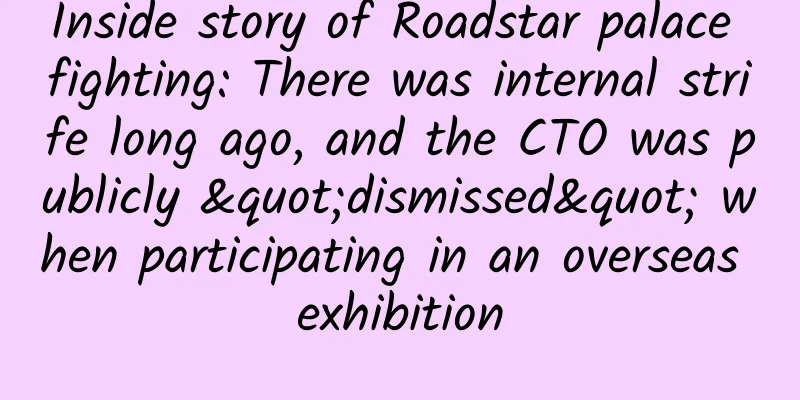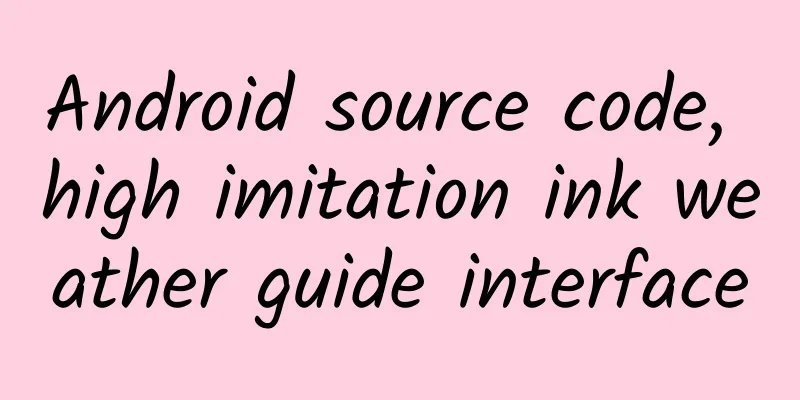I have some bad news for you: you may not be suitable for operations!

|
Continuous self-examination, summarization, and filling in the gaps should be a subconscious behavior and habit of an operator . If you have already been working in operations , recall what you have done , the results you have achieved , the problems you have encountered , your gains , and the advantages you have . You may not easily notice the shortcomings , or even some drawbacks and bad habits. What do you really get after operating for so long ? The halo of the platform ? Careful thinking logic ? Super strong execution ability ? Irreplaceable skills ? Overall planning and resource integration ? Reviewing the status of my own operations—— Is it that you think more and do less ? Complain more and think less about yourself ? Do you always complain about the objective limitations and obstacles , the scarcity and insufficiency of operational resources , the complexity of tasks , the overload of work , the ridiculously high goals , the poor product experience , and the incompetence of your leaders more than you examine yourself ? Maybe you have far more complaints about your operations work than those mentioned above . These are the problems you encountered in your operations work . However, you just complain instead of thinking and solving them quickly . For this reason alone, you may not be suitable for operations ! Of course, I wouldn’t dare to conclude that you can’t do other jobs ! The most basic idea and logic for operations is to be able to quickly discover problems – deeply analyze problems – and quickly solve problems ! However, how many people can truly understand the basic ideas and logic above and cultivate this simplest thinking logic into subconscious behavior and habits? The reason for the above conclusion is very simple , because you will find that many people who do operations continue to complain after complaining , while those who can really do a good job in operations may use complaints as an emotional release , but then they can quickly come up with effective solutions and put them into action effectively. A very simple question : if an operator cannot even solve his own work problems , how can he solve the problems that exist in the operation process ? The reason for the above situation can be summarized in one sentence : the problem of operational sensitivity , which is mainly manifested in the following three aspects : 1. Lack of natural awareness of problems Background, purpose, goal, strategy, plan and schedule : this is the most basic thinking process that operators should have when doing anything. The phased goals did not meet expectations , the planned strategies and means did not show results , and the tasks were not completed at the specified actual nodes . There must be many problems and reasons behind all of this. Just like in community operations , you launched a topic activity , but the data feedback was far less than expected . Can you quickly identify the key deterministic issues ? Remember that it is a question of certainty , not subjective conjectures such as may ..., should ..., etc. 2. Lack of subconscious systematic thinking dimension As mentioned above , you planned a topic activity in the community , and the data on topic participation was not satisfactory . You should have a systematic and clear thinking dimension in your subconscious mind , rather than making random guesses without logic. Your thoughts and analysis should not be : Is it because no one is interested in the topic ? Is the title unattractive ? Is it because the promotion efforts are not strong enough ? It is difficult to think about the problem completely and exhaustively through direct scattered point inference , and it is easy to be inconsiderate. The correct approach should be to first think about the root cause and consider the dimensions that affect the data effect of topic posts , as shown in the following figure : Our thinking ideas and dimensions when doing topic planning and promotion are basically consistent with the analysis dimensions of problems we encounter in the process of topic planning and promotion. We break down the dimensions according to the influencing factors , and gradually identify and determine the specific problems . Of course, this entire process needs to be combined with data feedback . For operations, only data is the most honest and reliable ! 3. Response after discovering the problem When promoting operations , you always have a fear of difficulty after discovering a problem : you complain that the solution is too difficult , the budget is insufficient , the resources are insufficient , and even if you do it, you may not be able to solve the problem. When operations staff are organizing activities or doing promotions , they often wait for the natural traffic brought by exposure through various channels after the activities or special content are launched , without any human intervention or control. For example, after a community content special page is launched , the data performance in all aspects is not good . However, after a few days , no changes or optimizations have been made to the content, including the selection of promotion channels , Banner copywriting , and titles of posts aggregated on the special page. The interim goals have not been achieved , the planned tasks cannot be effectively executed , and there is no determination to do whatever it takes to achieve the goals , even if it means working all night to complete the planned tasks within the specified time . If this is the case , what is the point of operations personnel ? Operations themselves require constantly discovering problems , analyzing problems and solving problems , in a cycle. Whether a person is qualified for operation or suitable for operation can be judged based on the following points . If the following problems exist , then reflection is necessary. 1. People who do things without considering the purpose , blindly execute without considering the results This is particularly evident among many operations personnel , who always do things passively , never thinking about the logic behind anything they do in their operations , and lack a result-oriented awareness. The most obvious thing is that when doing user operations , user communication is very important , but many people communicate blindly . Most of them just chat with users aimlessly . There is no actual output or conclusion after the chat , and they do not consider the specific input-output ratio at all. Any form of user communication should have a clear purpose , is it to maintain emotional connections ? User demand mining ? Or understanding of user status or information ? The way and content of communicating with users will be different depending on the purpose , and since it is communication with users, there must be a definite conclusion or output. For example, if the purpose of user communication is to maintain emotional connection , then after you communicate with the user , does the user's stickiness with you or their favorable impression of you increase , and are they more active in using the product ? If the purpose of user communication is to explore or verify needs , is there a definite conclusion about the needs after the communication ? If the purpose of communication is to understand the user's status , then does the communication result allow us to understand the user's current situation, psychology, emotions, or some other information about the user ? 2. People who lack awareness of goal control and are not sensitive to schedules They are unable to set scientific and reasonable goals for their operations , and they lack the determination to do everything possible to achieve their goals , and they lack the determination to work all night to complete planned tasks within the specified time. Many operations people take it for granted and make decisions based on their own ideas when setting interim goals. They lack effective basis and do not break down the set goals . The corresponding work plans or strategy formulation are almost detached from the goals . They never consider whether the next operational plan proposed after goal setting can effectively promote the achievement of the goals , and how much each measure can contribute to the achievement of the goals. What’s strange is that everyone sets different operational goals for themselves every week , but the work content each week is always surprisingly similar. Take community operation as an example . Based on the goal of community posting volume , the weekly work is all about coming up with topics, organizing activities, and doing content management. 3. Lack of systematic thinking and single-point thinking Many operations personnel think superficially and lack a systematic approach . They always think of specific measures right from the start , and they just think of whatever they want . Sometimes they get excited about ideas or methods that pop up occasionally. A simple and daily example can illustrate this well : if you are asked to associate the word " apple " , what words will you think of ? When many people saw this question , they immediately started giving various answers : iPhone, Apple computer, Newton, edible apples ... However, this method is difficult to exhaust and it is easy to encounter bottlenecks in thinking . With this single-point thinking , you can only think of 20-30 things at most . Moreover, as the number of associated words increases , the speed of thinking of words will become slower and slower. If you use the pyramid thinking to break it down step by step from top to bottom , and make each layer completely exhaustive and independent of each other , the effect will be completely different. Just like in store operations, many people first think of specific measures to increase sales , rather than first considering the factors that affect sales ! Systematic thinking needs to be cultivated proactively . If you have been operating for 2-3 years and still cannot think systematically and are still single-point thinking , then there is a big problem , because the way of thinking cannot be changed overnight ! 4. Unable to coordinate and optimize their work and do not know how to manage time Operations are complex and require multi-threaded work . Many operations staff seem to be very busy every week , but they often don’t know what they are doing and are inefficient . One is the lack of priorities in work , and the second is the lack of effective time planning and arrangement. Faced with this situation, many people do not consider themselves . The first thing they think of is that the work assigned by the leader is too much and unreasonable , instead of considering whether they can optimize their work , such as distinguishing between primary and secondary priorities , prioritizing , standardizing routine work processes , and improving their own work efficiency. Everything is operations , and you treat your work like an operations project . You feel that there are too many things to do , they are too complicated , and you can't finish them . This is a problem. What every operator should do is not to complain , but to analyze , find out the key reasons , and then effectively solve and optimize. People who often complain instead of thinking about solutions when doing operations are definitely not suitable for operations ! 5. People who are used to staying in their comfort zone are not suitable for operations If you expect to work from 9 to 6 and achieve your goals easily , and simply rely on platform resources to wait for the number of users to increase and the user activity to improve , then you are definitely not suitable for operations. Working overtime in operations is common , and high pressure and fast pace are the norm. It's difficult to grow quickly if you don't go through a few times of despair and feeling like you're on the verge of collapse. Three years in operations is a milestone . Whether you can make a breakthrough directly determines your subsequent growth and development. “ When you are surrounded by mountains and rivers and think there is no way out , suddenly you see another village with willows and flowers. ” Many times , bottlenecks in thinking and difficulties in ideas are suddenly solved after you have experienced high pressure , near despair and on the verge of collapse in practice. 6. Being content with the status quo and not thinking about change , lacking the awareness of summarizing I have been repeating the same work day after day for several years without making any changes , and subconsciously lack the summary and optimization of the phased work and results. We have created dozens of topics and held dozens of activities , but we are still repeating the original ideas to continue creating topics and organizing activities without any experience or methodological summary. The same mistakes that were made before will continue to be repeated , which will lead to limited thinking and inertial thinking , which is very fatal to people doing operations. The most difficult thing to deal with in operations is the periodic operational summary and review , and the operational summary does not necessarily have to be long and written. Even if you are doing something as simple as collecting and compiling information, you can still think and summarize. Operational summaries should be done all the time and accompany the entire operation work ! Writing an article is also a very good summary of yourself. 7. Lack of learning awareness and no learning habits Self-awareness , learning and improvement can also be regarded as an operational project . Discovering one's own shortcomings , being able to quickly formulate effective improvement goals and plans , and implementing them quickly are habits that operators must have. If you have been working in operations for 2-3 years , have never read any articles or books on operations , have never had an in-depth understanding of competitors , or are unconscious or lazy about any form of learning , then you are definitely not a qualified operations personnel. It is far from enough to accumulate experience in operations only by relying on current practice , and this kind of short-sighted practice can easily solidify one's own thinking. Let’s go back to the idea mentioned at the beginning of the article . If you read this article and find that you do have all or one of the above problems , what should you do ? The most basic idea and logic for operations is to discover problems, analyze problems and solve problems , so the first thing you need to do is to follow this most basic idea and logic. But if you agree with this article after reading it , and are able to learn from your mistakes , and silently make up your mind to make conscious changes , but after a good night's sleep and waking up the next morning , you find that your desire and determination to change have become vague again , and laziness has overcome your will again , then I can only say that you will not be able to do operations well , or even other work well. Since you are in operations , you need to treat everything as operations . Look at everything you encounter as operations and do everything with an operations mindset . Operations learning and practice are everywhere in life ! Mobile application product promotion service: APP promotion service Qinggua Media advertising The author of this article @Jason is compiled and published by (Qinggua Media). Please indicate the author information and source when reprinting! Site Map |
<<: An analysis of the operation of a maternal and infant APP product activity
Recommend
The new version of QQ Mobile 8.8.0 is here! Are the emoticons more fun than WeChat?
The update of mobile QQ has ushered in an auspici...
The magical "Sarebo" and the noble "Jiusi Zheer"
In the middle of Lushan Scenic Area in Xichang, t...
How to elegantly design data stratification in a big data environment
I have to complain that those who work with big d...
International Volunteer Day丨Do you know these things about volunteer service?
I am Dongdong Miao, International Volunteer Day i...
Is it expensive to customize the Putian Hotel mini program? Putian Hotel Mini Program Customization Fees
More and more businesses are paying attention to ...
How long does it take to review Tencent’s advertising account opening? How to check the account opening results?
Review time limit How long does the account openi...
Android source code download: Bluetooth_4.3 BLE Bluetooth communication
Functional classification: Tools Supported platfo...
Why didn't a larger iPad appear this year?
In the early morning of October 17th, Beijing tim...
How to choose a reliable Douyin agent?
Weibo, Weibo and Douyin have become the standard ...
Comic: Human Code Evolution Illustrated Book
Reviewer: Luo Huiqian, Associate Researcher, Inst...
All-round upgrade! Beidou has a new update after a thousand days!
At 10:49 on May 17, my country successfully launc...
Your Android app doesn’t need that many permissions
Android system permissions can be a bit confusing...
A textbook-like practical method for live streaming on Douyin
Luo Yonghao's live broadcast lasted 3 hours a...
Microsoft Bookings mobile app will no longer be available starting July 15
On June 21, according to a notification from the ...
Practical methodology to improve SEM bidding promotion effect by 70%!
1. Introduction to SEM bidding Here, I need to sa...









